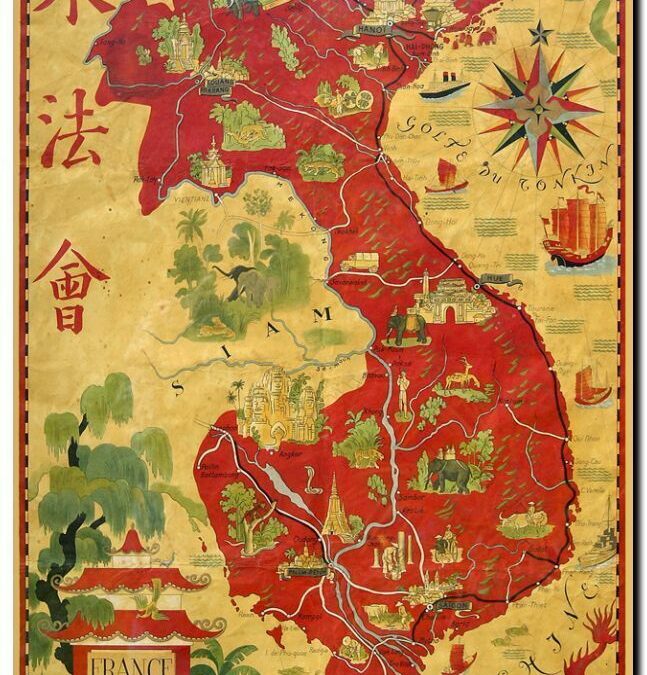
The Greatest Dress, Ever!

“How sharper than a serpent’s tooth it is to have a thankless child.” ~ Wm. Shakespeare, King Lear
My mother once bought me the greatest dress, ever. I was thirteen. This dress was epic, so epic I even wore it once. Once, and only once – because she demanded that I do so, after complaining time and again that it was hanging in my closet unloved and unworn, a sign (one of many) that I was an ungrateful child. And yes, she regularly quoted that bit of Lear at me, as living with me, to her point of view, was indeed sharper than a serpent’s tooth. So, I did it, I wore the fucking dress – to shut her up, if for no other reason; I finally put on the greatest dress ever. I had tried it on, initially, when she bought it, even though merely eyeballing it told me right away no, and no, and no, no, no, no. I wore it to church, look Queen Lear, under a puffy winter coat I absolutely refused to take off, which worked out okay for me as the cavernous Catholic Church in Margaretville was never heated adequately, and, quite frankly, fuck my mother and her fucking truly horrible piece of shit dress.

Fine. I will admit it was a truly lovely tartan, primarily royal blue and black, shot through with red, orange and green, made from an okay, not great material combo of 70%-30% rayon to cotton. It had a blindingly white Peter Pan collar turned sideways that came to the base of my neck – much too tight a collar, in fact, that had long tails where it met at my right collarbone, one draping down the front of the dress, and one dashingly designed to toss over my back. Matching two and a half inch cuffs, also in white-white-white, ended the long, to the wrist, very tight (too tight) sleeves. A matching tartan belt came with, to cinch the waist, a belt that was less than an inch wide, and about seven feet in length. The dress, depending on whether I moved in it or not (I will explain) came to about three inches below my knees. But, it didn’t ever really come to that length, not because of the belt, precisely, or my burgeoning adolescent curves, but rather because, from the too tight neck to the hem, it was tightly pleated. Ever see a dog in one of those prevention collars, conical plastic bell-like structures? The dress was like that, sort of, only turned around, widest part of the cone facing my feet, and it was pleated. And tartan. It fell from the neck, just below sideways Peter Pan, in narrow pleats, pleats, that sans the belt made me look like an odd Scottish circus tent. If I used the belt and moved – as in walking, the top half would slowly yet inexorably begin to grow, rise, and billow out, giving me an ever-expanding puffy bust, similar to that of my dad’s cousin Harriet, the one who smoked a pipe and could balance a dessert plate on her truly magnificent boobage, which was puffy yet also solid AF. If I didn’t wear the belt, and moved, the bottom billowed out in a way that was equally unflattering, embarrassing, and tent-like, a tent that was not tethered to the ground; perhaps I should’ve added fishing line weights to the hem? That would’ve been nice.
The dress was an abomination, and seemed to typify my mother’s desire to turn me into an entirely undesirable freak, a joke, a punch line, a virginal, Scottish circus tent or trained, grateful serpent. She had and regularly expressed very strong ideas about the professions that were appropriate for women, of which there were three: teaching, nursing, and nun (nun-ing?), which begs the questions, do nuns get paid, and is nun-ing actually a profession? Isn’t it a rather calling, and in case you were wondering, I felt zero call, or instead a call to holler ‘no fucking way, Jose’ with regard to becoming any of those extremely limited options. That dress did have something in common with nuns’ habits, as with the exception of moving or the billowing hemline, it covered me from my neck to below the knee, including my arms to the wrist. My two sisters actually did become, respectively, and respectably, a teacher (my older sister) and a nurse (my younger). Isn’t that fabulous?! As for me – still waiting for that danged call!
Shortly after this dress debacle, my older sister went off to college; she had graduated from high school a year early, and her absence ushered in a very tense period at home. First of all, my mother missed her terribly and was worried sick (her precious, precious baby, in a city, in another state, in unknown territory: Providence, R.I.!!). Secondly, because I was no substitute, rather a punishment, given that I was ungrateful, difficult, and wholly incapable of carrying on an adult conversation (gossip) over coffee (never tried it, have never had it) after school or on weekends when my dad was at work when mom liked to sit at the kitchen table and drink copious cups of java. Thirdly, because my sister’s out-of-state private art college education was expensive (RISD), including bills for art supplies that arrived monthly, bills that could not be questioned, ever, and my parents were spending their life savings to that point in support of this absolutely essential experience for my older sister. After all, she was going to be the next, American born, Picasso, a fantasy my mother indulged without regard to her eldest child’s actual temperament or personality. My dad locked himself in his den every time one of those art supply bills came in (I peeked, more than once, and was surprised to find that porcini mushrooms and silver bangle bracelets were considered art supplies) after which he would call my sister while I listened from the living room (pretending to read) while she – Picassette! – cajoled and charmed him out of the black depression and financial anxiety that otherwise ruled during his all too few hours at home from work. Good times.
Anyhoo, given I had rejected her dress, that beautiful, tasteful dress, the first one she’d bought me and me alone in forever, hand-me-downs from the great artist on high being the rule, my mother went full-in on refusing to buy me any clothes. I knew my dad was freaking out over costs, so there was no way I felt I could approach him, even if such a thing were conceivable in the first place, which it was not. But, at least my dad’s clothes, his outside stuff mostly, I could occasionally grab, because he kept everything forever, never shopped, and some of it didn’t fit him anymore. Plus, he was cool about my borrowing his clothes, even if it bemused him as to why I would want to do so. If he’d asked, pockets, dad, pockets, plus, you know, all this unsaid, that person, your wife, and y’know. You know, right?! Without my saying it, he knew, telling me to be nice to your mother, be nice. Yes, okay. Sure. Almost forty years later, as he was dying, he would apologize to me for not doing more to protect me from my mother. Good times.
Eventually I used pinking shears to cut the tartan tent dress into squares, which I burned in the burn barrel up above the wood shed. At least, that’s what I think I did. It might be a fantasy of mine, made up at the time, while the dress languished (my little sister didn’t even bother trying it on, it was that awful) unloved, and unworn, in the head-banging closet at the top of the back stairs.
That is the story of the greatest dress ever. One day I hope to recreate its awfulness – because even now, it seems impossible to me that anyone – anyone – would consider that a fully pleated dress, pleated from the neck to the knees, with an off-center Peter Pan collar was in anyway attractive. It might’ve worked, it might have, on a completely skinny, flat chested, no hips eleven-year-old boy or girl who could tie that strip of tartan belt around their waist twice. It didn’t even have pockets, forchrissake!

